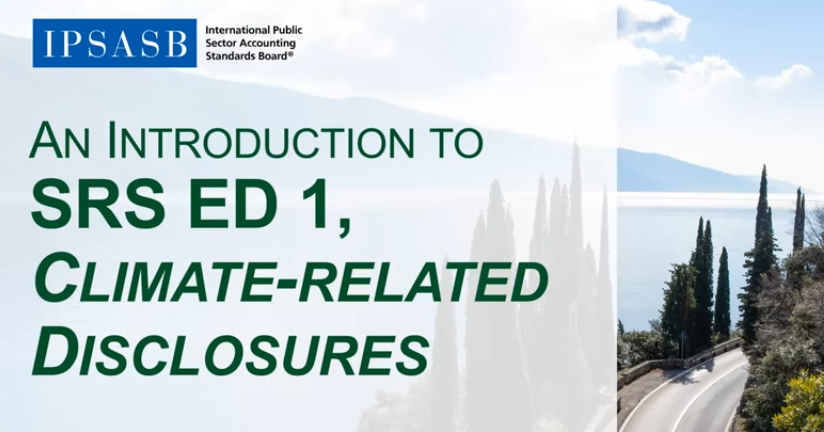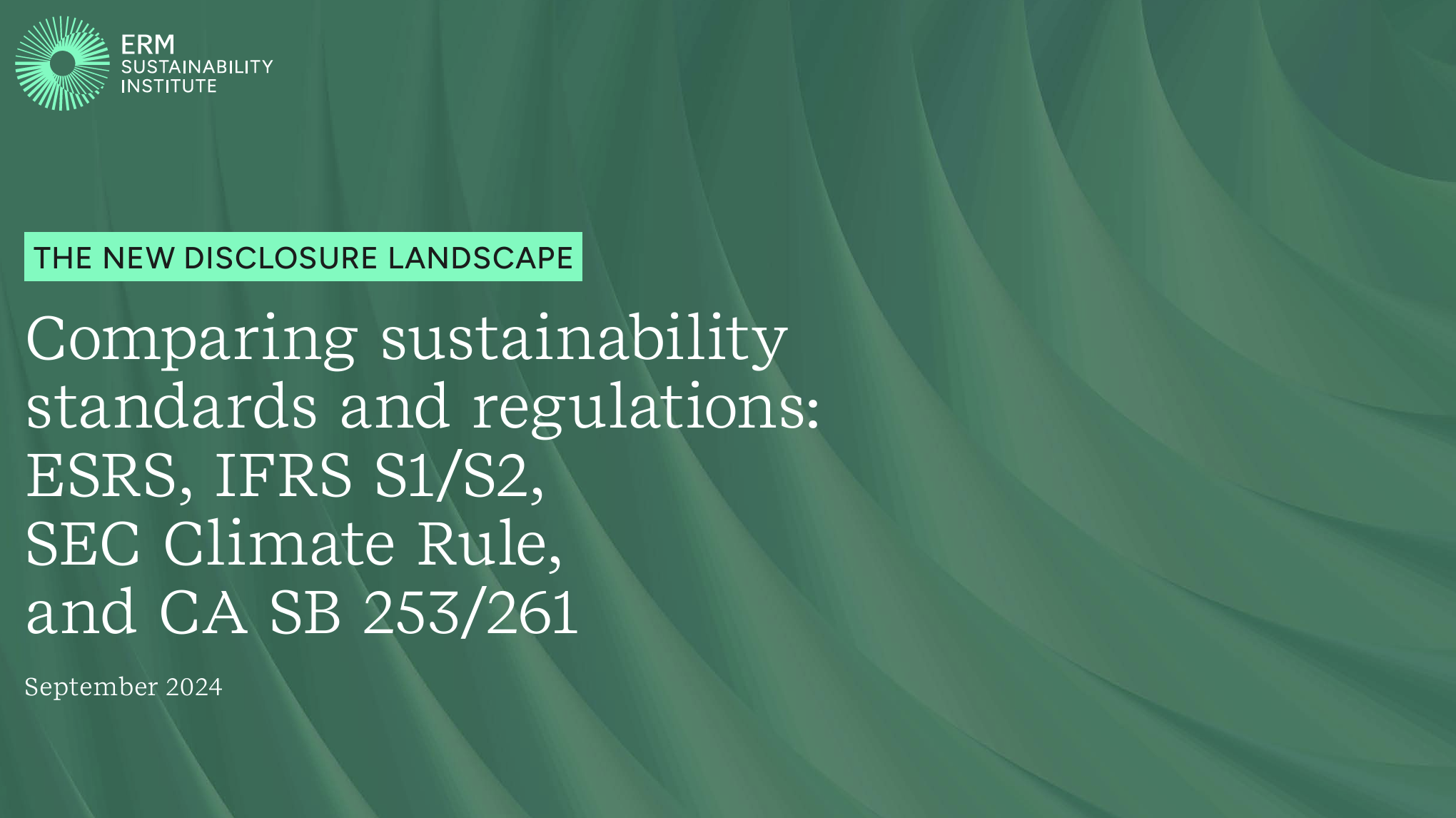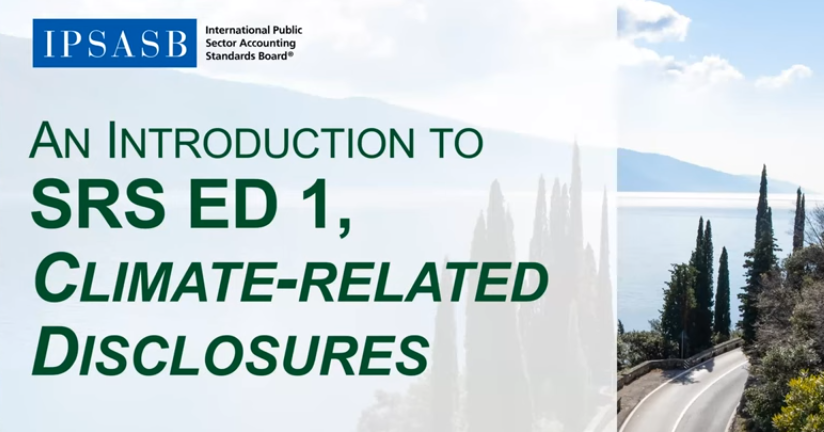IPSASB Issues Landmark Climate-Related Disclosure Standard for the Public Sector

The International Public Sector Accounting Standards Board (IPSASB), supported by the World Bank, has introduced the world’s first climate-related disclosure standard for governments. The release of the initial exposure draft, Sustainability Reporting Standard (IPSASB SRS ED 1), marks a significant step in addressing the unique reporting needs of the public sector and is now open for public consultation.
The full text of IPSASB SRS ED 1 Climate-Related Disclosures and the summary document At a Glance are available for review.
This document, developed and approved by the International Public Sector Accounting Standards Board (IPSASB), outlines a framework for public sector entities to disclose climate-related information in their general purpose financial reports.
The IPSASB invites feedback by February 28, 2025, with an emphasis on specific matters for comment, including the alignment with private sector standards like IFRS S1 and S2 for climate-related disclosures.
Objective of the Exposure Draft
The purpose of this Exposure Draft is to provide principles for disclosing climate-related risks, opportunities, and outcomes of climate-related public policy programs that affect an entity’s operations. The goal is to make this information useful for primary users of the financial reports in making accountability and decision-making assessments.
Key Proposals
- Disclosure of Climate-Related Risks and Opportunities
Entities are required to disclose climate-related risks that could affect long-term fiscal sustainability, including both physical risks (e.g., storms, droughts) and transition risks (e.g., regulatory changes, market shifts). Additionally, the impacts of climate-related opportunities should be disclosed, highlighting how climate change might present positive effects for the entity. - Public Policy Programs
When an entity is responsible for outcomes of climate-related public policy programs, it must disclose relevant information about these outcomes. This could include the entity’s role in managing such programs or the impacts of these policies on public finances. - Transition Plans
Entities are encouraged to disclose their transition plans to a low-carbon economy. This includes detailing their targets and actions aimed at reducing greenhouse gas emissions. - Metrics and Targets
Entities should disclose metrics for climate-related risks and opportunities, as well as targets set to achieve specific climate-related outcomes. This includes tracking greenhouse gas emissions linked to their own operations and public policy programs. - Governance and Strategy
Information about governance structures and strategies for managing climate-related risks and opportunities must be disclosed, enabling users to understand decision-making processes and strategic directions.
Scope and Definitions
The standard applies to all public sector entities that report on climate-related risks and opportunities affecting their own operations and public policy programs. Definitions are provided for terms such as climate resilience, carbon credits, greenhouse gases, and climate-related transition risks, to guide entities in their reporting practices.
Request for Comments
The IPSASB seeks comments on various aspects of this Exposure Draft, including:
- The approach to disclosing climate-related risks and opportunities for public sector entities.
- The definitions and scope of climate-related public policy programs.
- The proposed disclosure requirements for climate-related metrics and targets.
The feedback received will inform potential modifications to the draft before it is finalized. Public comments will be published on the IPSASB website.
The International Public Sector Accounting Standards Board (IPSASB) has released an insightful webcast on the draft Climate-related Disclosures.
Source: Official IPSASB Website



